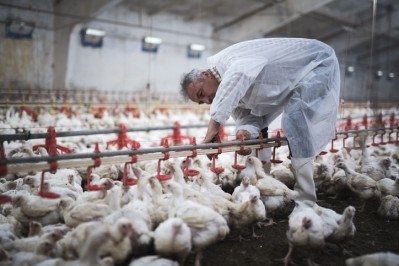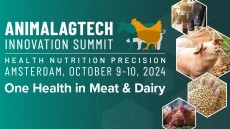German risk assessor: PFAS limits in feed needed to enhance food safety

Building on its 2021 opinion, these guidelines aim to support compliance with established maximum PFAS levels in food, despite the absence of EU-wide limits for animal feed.
The BfR's recommendations incorporate recent scientific findings and emphasize the importance of considering all PFAS intake sources, such as soil and drinking water, to protect consumer health.
The EU has been intensifying its efforts to develop enforceable limits as regards PFAS in feed in a follow up to last year's regulation that targeted the amount of those chemical substances in food; that legislation limited the permitted levels of four PFAS compounds - perfluorooctane sulfonic acid (PFOS), perfluorooctanoic acid (PFOA), perfluorononanoic acid (PFNA), and perfluorohexane sulfonic acid (PFHxS) - in meat, poultry, fish, and eggs within Europe.
The BfR decided to review its previously published PFAS guidance for animal feed as it was based on the maximum levels in food established in 2021, which differ slightly from the current limits in food set by Regulation (EU) 2023/915, a spokesperson for the German risk assessor told FeedNavigator.
"For instance, PFOS levels in eggs or meat were adjusted from 0.7 to 1.0 μg/kg and from 0.1 to 0.3 μg/kg, respectively. Additionally, new transfer studies prompted a review. Consequently, BfR decided to update its opinion."
The PFAS levels in feed mentioned in the new opinion are indicative and not legally binding at either the national or EU level, said the spokesperson.
"They are meant to serve as guidance and do not indicate that animal feed contains PFAS at specific levels. The presence of PFAS in animal feed should be assessed through PFAS monitoring programs or self-inspections by feed manufacturers, rather than strictly adhering to these guidance values."
Forever chemicals
Poly- and Perfluoroalkyl Substances or PFAS for short are persistent chemicals used in various industrial processes and consumer products. They accumulate in the environment, including water and soil, leading to their nickname, 'forever chemicals.'
Livestock can absorb PFAS from feed, which then enter the human body when animal-derived food is consumed.
Scientific studies on PFAS transfer
The BfR considered new findings from animal studies, using toxicokinetics modeling to estimate PFAS levels in complete feed that align with the current indicative values for food.
This modeling, based on scientific studies on PFAS transfer from feed to animal origin derived food, covered complete feed for cattle, sheep, fattening pigs, and laying hens.
Ongoing monitoring
The agency also highlighted that current data are insufficient to determine the contribution of individual feed components to the total PFAS concentration in rations and it is encouraging the collection of representative data for PFAS in various feed materials from different origins through monitoring programs. Such a move will improve the data set and inform future recommendations for feed formulation options, it noted.
The European Reference Laboratory (EURL) has been focusing on bolstering analytical capabilities for the detection of PFAS in both food and feed for several years.


















